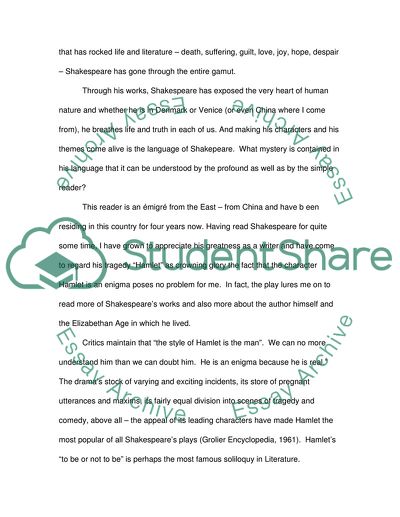Cite this document
(“Shakespeares Universal Appeal as Shown in Hamlet Research Paper”, n.d.)
Retrieved from https://studentshare.org/literature/1566959-shakespeares-universal-appeal-as-shown-in-hamlet
Retrieved from https://studentshare.org/literature/1566959-shakespeares-universal-appeal-as-shown-in-hamlet
(Shakespeares Universal Appeal As Shown in Hamlet Research Paper)
https://studentshare.org/literature/1566959-shakespeares-universal-appeal-as-shown-in-hamlet.
https://studentshare.org/literature/1566959-shakespeares-universal-appeal-as-shown-in-hamlet.
“Shakespeares Universal Appeal As Shown in Hamlet Research Paper”, n.d. https://studentshare.org/literature/1566959-shakespeares-universal-appeal-as-shown-in-hamlet.


